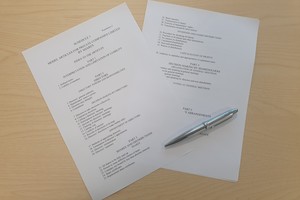While there is a lot of learned academic debate going on, those of us in practice know that the real world is concentrating almost entirely on the protection of our clients’ businesses and, in almost all cases, preserving their cash as much as possible.
There have been some chancers out there, trying to exploit the financial crisis to their advantage but the difficulty is in spotting them with confidence. In most cases both sides, whether landlord and tenant or seller and buyer, want to try and preserve existing contractual relationships. Very few landlords will want empty property back on their hands and most tenants will want a viable business to pick back up when the current lockdown eases, so in most cases there is a mutual interest in finding practical commercial solutions.
The rent moratorium introduced by section 82 of the Coronavirus Act 2020 has tied the hands of those advising landlords for now but the big question remains what will happen when the initial moratorium comes to an end?
While these are the sorts of crisis-related issues that have dominated professionals’ time, there are others that are less immediately obvious as a result of social distancing and the effect of the Health Protection (Coronavirus, Restrictions) (England) Regulations 2020. For example:-
- If there is a break option, how does the tenant comply with obligations to give vacant possession or to comply with its covenants, which are frequently pre-conditions to a break notice being valid?
The law says that break option provisions require strict compliance, which might be impossible under the 2020 Regulations. It was always the case before lockdown that leases containing break clauses should be looked at very carefully, whether advising a landlord trying to avoid a broken lease or a tenant trying to make sure a break notice stuck but, at least for now, that is even more the case. - For a tenant to have the security of tenure afforded by the Landlord and Tenant Act 1954 it must be in occupation of the premises for the purposes of its business at the relevant time.
So what is the position of the tenant if it cannot freely access and use those premises? Could the tenant lose security and could the landlord exploit that for its own ends? - How does a party execute deeds, sign and serve notices, make statutory declarations and do all the other things we took for granted before lockdown?
At the moment, all these things will generally require “wet signatures” to be valid, with no real sign of an electronic alternative that we can use with confidence. - Are we and our clients serving the right form of notice? For example, landlords requiring possession of residential property under section 21 Housing Act 1988, need to use a new form of notice (form 6A) introduced at the end of March.
We are keeping on top of these issues, so that we can keep our clients and our professional network properly advised at all times. If you are affected by any of the issues described, or any other novel challenges presented by the current crisis, we are all here to help.



















